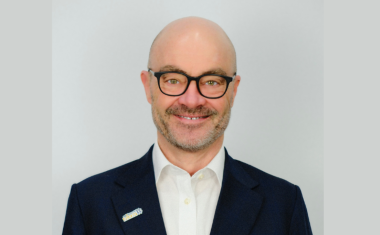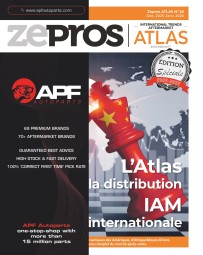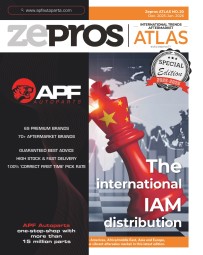
M. Hendriksen, Nexus: “Africa remains a complicated and multi-facetted market”

Martin Hendriksen, VP business development Africa Nexus Automotive International, describes for Zepros the complexities and potential of African markets.
Can we really speak of one African market?
Martin Hendriksen: The market is not evenly distributed in Africa. Every country, every region and sometimes every city operates on a different scale. And if we look at the continent in terms of business opportunities, eight to nine countries account for 80% of the continent’s GDP, mainly driven by South Africa, Algeria (albeit with the automotive business virtually at a standstill between 2019 and spring 2023), Egypt and Nigeria. There’s no consistency between the different markets. Take a country like Nigeria, which, despite being a major oil producer, has a low per capita GDP and a very low car ownership rate (56 vehicles per 1,000 inhabitants). This contrasts with South Africa, which has roughly the same popu- lation but a higher car ownership rate (173 vehicles per 1,000 inhabitants). Consequently, South Africa remains something of an anomaly on the continent! It has a solid economy, a large fleet of vehicles and a fairly mature industry, with a market structure similar to that of Western countries. However, you can also find successful players all over Africa. For example, AutoXpress in Kenya, a member of the Nexus community, runs a network of 60 car assembly centres that have a standard of management skills to succeed and compete on equal terms anywhere else in the world.
Are any African chains succeeding in expanding beyond their own borders and becoming established in neighbouring countries?
M.H.: In general, no chain developed in Africa has succeeded in exporting. Some South African networks have tried to set up in Australia, but without much success. And of course, there is Kenya’s Auto-Xpress, which has opened sites in Tanzania, Rwanda and Uganda. But this chain remains the exception.
And what about non-African brands setting up on the continent?
M. H.: Some French networks are present in French-speaking countries. Similarly, a number of Middle Eastern players have operations in Africa and a network of branches, but only to meet very specific needs. In fact, it usually involves just setting up a distribution point or warehouse, but without any real roll-out strategy.
Retrouvez la version en Français : M. Hendriksen, Nexus : «L’Afrique reste un marché compliqué, à multi-facettes»
Does this mean there are no expansion and consolidation moves afoot?
M.H.: Not for the time being, but that could change. The fabric of the African economy is made up of family-run businesses. Educated at Western universities, the heirs are less and less interested in taking over the family business. And I don’t think that consolidation by direct competitors will be possible, due to a lack of financial resources. So large organised groups, particularly from the Middle East, will certainly play a role in consolidation in Africa.
People say that doing busi- ness is complicated in Africa. What do you think?
M.H.: It can be difficult for Westerners to do business in this market, which is not particularly structured. Some Western suppliers have found ways of adapting their business model and managing the regulatory constraints that are often imposed on them. Additionally, the African way of approaching business, which sometimes involves taking risks, particularly financial risks, discourages some major parts suppliers from attempting to conquer Africa, and which effectively excludes them from the market.
The case of South Africa is different again. The model is similar to that found in the West, with a mix of premium brands, private labels and suppliers of lower quality parts, just like in Europe and the USA. But in addition to the inflationary pressure, we mustn’t forget that in Africa, the fleet is very old. Does it make sense to fit premium – read expensive – parts onto a vehicle whose average age is 16 to 18 years? To regain lost ground, Western equipment manufacturers must therefore adapt to all these constraints, and more specifically those of low prices. The Chinese have clearly latched onto this and have suc- ceeded in gaining a foothold in Africa.








